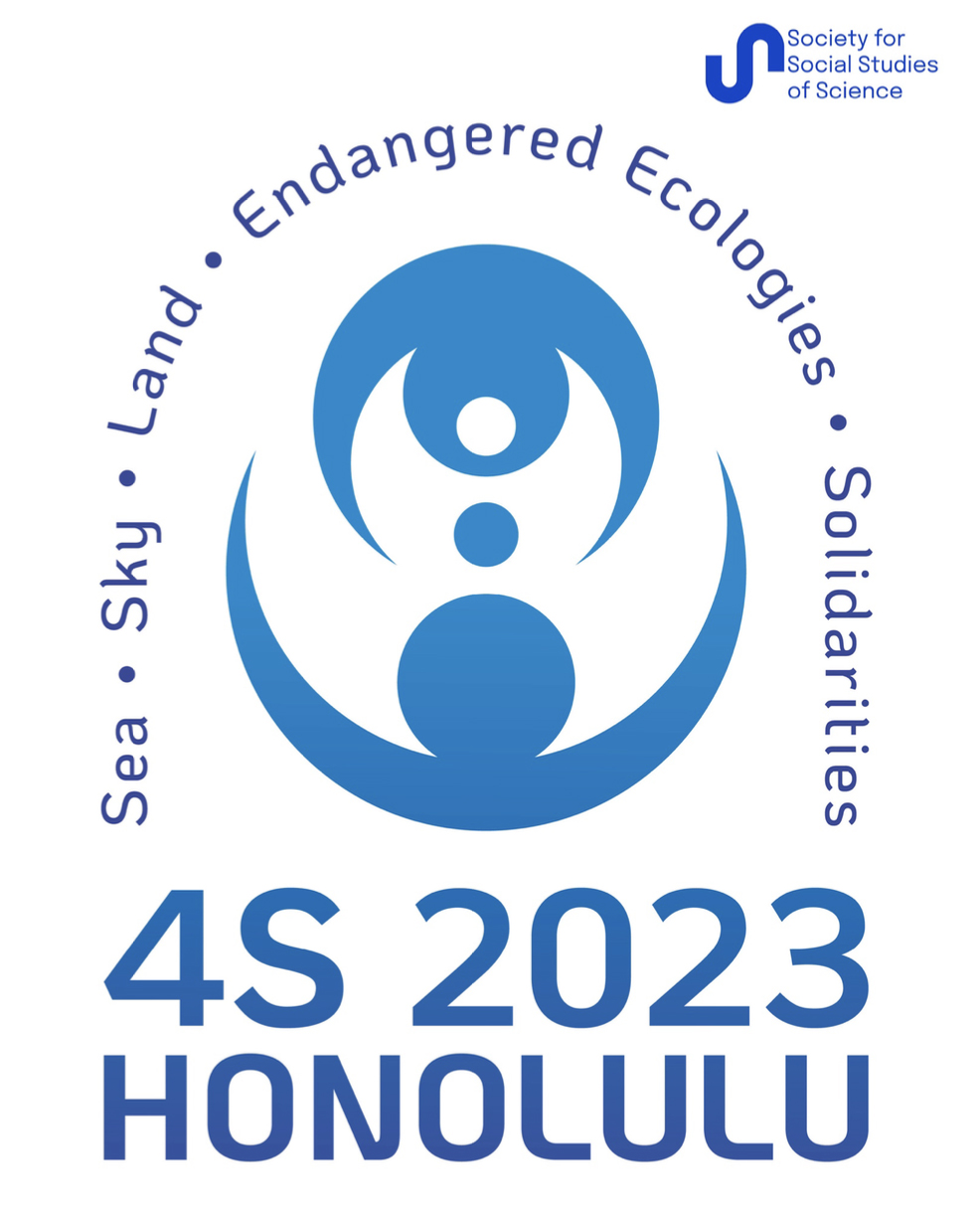Alice Jarry and Chris Salter present ASTS Imaginaries and the Production of Publics at 4S
Sunday November 11 2023, Honolulu, Hawaii
Alice Jarry and Chris Salter present ASTS Imaginaries and the Production of Publics (Chair: Hannah Stars Roger) at Society for Studies of Science
Alice Jarry and Chris Salter present ASTS Imaginaries and the Production of Publics (Chair: Hannah Stars Roger) at Society for Studies of Science

The burgeoning area of Art, Science, and Technology Studies explores the relationship of art and science using approaches, methods, and theories from STS. As the recently published Routledge Handbook of Art, Science and Technology Studies (2021) demonstrates a variety of STS tools can be brought to bear on art science so that systematic research can be conducted on this unique set of knowledge-making practices. This three-panel series asks what is next for ASTS by engaging three major subjects which are emerging in this area of thought and practice: improv, exhibition making, and affective and experiential learning. Experimental and hands-on presentations, as well as traditional paper formats are encouraged.
Exhibiting ASTS Chair: Hannah Star Rogers
STS and art are becoming intertwined, as evidenced by the increasing numbers of STS exhibitions, programs, and events involving artists and STS scholars facilitating and curating exhibitions. Although these efforts have tended to position artworks as objects of analysis, a growing number of scholars are interested in 'working with artists and designers instead of making studies of them art to develop an emergent form of critique, which could allow novel discussions and explorations of sociotechnical complexity, and perhaps bring something new into being' (Calvert & Schyfter, 2017, p. 212, italics original).
Exhibiting ASTS Chair: Hannah Star Rogers
STS and art are becoming intertwined, as evidenced by the increasing numbers of STS exhibitions, programs, and events involving artists and STS scholars facilitating and curating exhibitions. Although these efforts have tended to position artworks as objects of analysis, a growing number of scholars are interested in 'working with artists and designers instead of making studies of them art to develop an emergent form of critique, which could allow novel discussions and explorations of sociotechnical complexity, and perhaps bring something new into being' (Calvert & Schyfter, 2017, p. 212, italics original).
To build further on this work, we invite ASTS/STS scholars and curators, science communicators and culture workers who use A/STS to reflect on the kinds of alternative knowing spaces that artists, scientists, and A/STS scholars can create together.3. Affective and Experiential Learning
Chair: Sarah Bezan
Experiential learning in ASTS takes many forms, from out-of-the-classroom experiences to informal science learning with the public. In this session, we welcome experiences from courses at environmental and biological field stations to curating exhibitions on historical and contemporary science and technology issues. At the same time, affective methods have come into research contexts and are increasingly used in classrooms and informal learning contexts. While experiential learning and affective learning do have some overlaps, there are also many differences to be explored. By comparing these approaches and considering how to make the most of these possibilities for learners, we hope to inspire more A/STS scholars to consider the ways to make experiential and affective learning part of your STS teaching.


